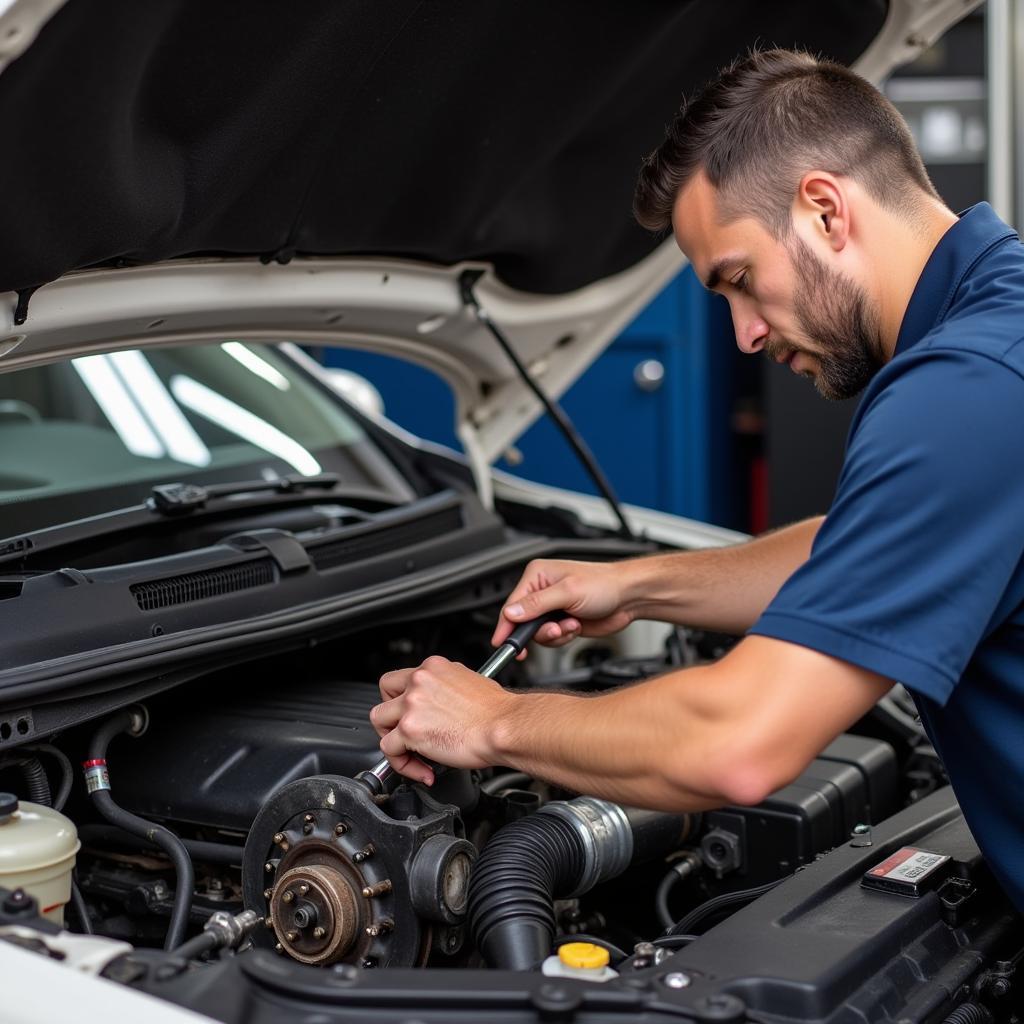Buying a second hand car can be a smart way to save money, but it’s crucial to be aware of the potential problems that can arise. Understanding common Second Hand Car Problems can help you make informed decisions and avoid costly repairs down the road. This article will guide you through the most frequent issues and offer practical advice for navigating the used car market with confidence.
Do you dread the thought of inheriting someone else’s automotive headaches? Fear not! This guide dives deep into the world of second hand car problems, providing you with the knowledge you need to make a savvy purchase. From engine troubles to electrical gremlins, we’ll cover it all.
Common Second Hand Car Problems: What to Look Out For
One of the biggest fears when buying a used car is ending up with a lemon. By understanding the common issues, you can be better prepared. These problems often include worn brakes, suspension issues, and hidden body damage.
- Engine Issues: Look for signs of leaks, unusual noises, and smoking exhaust. A thorough inspection by a qualified mechanic is highly recommended. Don’t shy away from asking the seller about the car’s service history. Has it been regularly maintained? What kind of oil has been used? These details can be incredibly telling.
- Transmission Troubles: A jerky ride or difficulty shifting gears could indicate transmission problems. These can be expensive to fix, so be vigilant during your test drive. Pay attention to how the car accelerates and decelerates.
- Brake Problems: Worn brake pads or rotors are common in used cars. Listen for squeaking or grinding sounds when braking. Check the brake fluid level and look for any signs of leaks.
- Suspension Issues: A bumpy ride or uneven tire wear could signify suspension problems. Have a mechanic check the shocks, struts, and other suspension components.
- Electrical Gremlins: Malfunctioning lights, a faulty radio, or problems with the power windows could indicate electrical issues. While some may be minor, others can be complex and costly to repair. Is the air conditioning blowing cold? Does the heater work effectively?
 Common Second Hand Car Problems: Engine, Brakes, Suspension
Common Second Hand Car Problems: Engine, Brakes, Suspension
How Can I Avoid Second Hand Car Problems?
Choosing a reliable used vehicle requires careful consideration and due diligence. What questions should you ask the seller? What should you look for during a test drive? Let’s delve into the essential steps for avoiding common second hand car problems.
- Thorough Inspection: Never skip a pre-purchase inspection by a trusted mechanic. This is the best way to identify potential problems before you buy the car. A mechanic can assess the overall condition of the vehicle, including the engine, transmission, brakes, suspension, and electrical system.
- Vehicle History Report: Obtain a vehicle history report to check for accidents, title issues, and previous repairs. This report can provide valuable insights into the car’s past and help you avoid potential surprises. car engine problems after dealership annual inspection are also something to be wary of.
- Test Drive: Take the car for a thorough test drive, paying attention to how it handles, accelerates, and brakes. Listen for any unusual noises or vibrations. Does the car pull to one side? Does the steering wheel vibrate?
What are the Most Common Problems with Used Cars After Purchase?
Even with a thorough inspection, some problems may not surface until after you’ve purchased the car. Knowing the most common post-purchase issues can help you be prepared. car brands that have the most problems is a resource that can provide further insight.
- Unexpected Repairs: Be prepared for unexpected repairs, especially in older vehicles. Setting aside a budget for maintenance and repairs is essential.
- Warranty Considerations: If the car is still under warranty, understand the terms and conditions. What is covered? What is not? Knowing your warranty rights can save you money on repairs.
- Regular Maintenance: Regular maintenance is crucial for keeping your used car in good condition. This includes oil changes, tire rotations, and brake inspections.
“Regular maintenance is the key to longevity for any vehicle, especially a used one. Don’t neglect those seemingly small tasks, they can prevent major headaches down the road,” advises John Smith, ASE Certified Master Technician.
Conclusion
Navigating the world of second hand car problems can be daunting, but with careful research and a thorough inspection, you can increase your chances of finding a reliable vehicle. Remember, being informed and proactive is the best defense against costly repairs and unwanted surprises. Contact AutoTipPro at +1 (641) 206-8880 or visit our office at 500 N St Mary’s St, San Antonio, TX 78205, United States for further assistance. We’re here to help you navigate the used car market and avoid those pesky second hand car problems.
Do all Ford cars have transmission problems? Find out more by clicking does all ford cars has transmission problems. It’s essential to research specific makes and models. For example, understanding common 03 lincoln town car fuel problems can help you avoid potential issues. Lastly, exploring the modern trolley car problem can offer valuable insights into the ethical considerations surrounding autonomous vehicles.




Leave a Reply